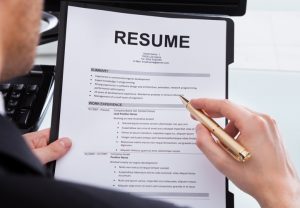
Congratulations! You’ve landed an interview. You’re one step closer to getting your dream job.
No doubt you’d start preparing for the interview questions that might be asked of you.
But the interview is also a chance for you to get to know more about the company and the role for which you’ve applied.
Asking questions about the company, the hiring manager, and the position also shows you’re serious about getting a feel for what working for the organization is like. It proves you’ve taken time to picture yourself in the position and that you’re serious about finding out whether it’s the right fit for you.
It leaves a strong impression on the interviewers and often can make a vital difference when it comes to the selection between two equally skilled applicants.
Let’s take a look at a few of the best questions you should ask at the end of the interview.
1. What are the day-to-day tasks for this job?
While you’ve probably already familiarized yourself with the job description, it probably didn’t get specific about the day-to-day responsibilities of the position. Smaller tasks that won’t be listed in the job description will likely be involved in your workday.
Asking about day-to-day expectations for the job can give you a better idea of if you’ll truly enjoy the work.
While the job description in the listing may seem like a great match for your skill set, you may actually end up spending a lot of your time talking on the phone or answering emails rather than doing work that challenges you. If this isn’t something you’re interested in, you’ll want to know before you accept the position.
2. What are your expectations for the job over the next month, six months, and year?
Everyone will have different expectations for the career they’re about to start. Maybe you’re looking for a company where you can advance quickly through the ranks, or you’re searching for long-term job security. While these may be your expectations, you want to be sure they align with the company’s expectations.
During the interview process, talk with the hiring manager about their expectations for the first month on the job. Then, see if those expectations will change over the first six months.
Finally, find out what they hope to accomplish after one year. Knowing what you’re getting yourself into can ensure you’ll be happy with the position if you accept the job.
3. What can you tell me about the company culture?
Company culture is extremely important for happiness in the workplace. If the culture of the company doesn’t fit your needs, or you don’t feel comfortable in the environment, you aren’t going to be happy with the job.
Ask the hiring manager to describe briefly what the culture is like. This includes everything from how the office is laid out to how employees interact with one another to the dress code.
Because you’ll spend a lot of time in the office if you’re hired, you want to ensure the culture fits your needs.
4. Where do you see the company in five years?
Whether you’re interviewing with a small startup or a well-known brand, you want to understand the direction the company is moving in the next few years.
While the hiring manager may not have all the answers to the decisions upper management is making for the company, they should have some insight into the company’s long-term business goals.
When deciding whether or not a job is right for you, you want to think long-term.
Whether or not you think you’ll still be with the company in five years, you probably are looking for a position you can grow with. That’s why it’s valuable to understand leadership’s vision for the business’s future success.
5. What challenges and opportunities do you see facing the company or department?
No matter the job you’re interviewing for, certain challenges and opportunities will face you, your team, and the company as a whole.
Understanding whether these challenges are something you can manage before getting involved can prevent you from feeling overwhelmed or unhappy with your career choice.
But simply showing you’re ready to help the company become its best can leave the impression that hiring you would be a good investment.
6. What’s your favorite thing about working for the company?
Finding out the hiring manager’s personal favorite quality of the company is an exciting way to get a sense of the company’s brand.
Because many hiring managers anticipate a question like this, they will share something they believe is a vital brand characteristic. Their answer can allow you to see what the company values and prioritizes.
7. What career path does someone in this role typically follow?
Although you’re looking to the near future when accepting a new job, you also want to consider how that decision will influence your long-term career plans.
If you know where you’d like to be in a few years, you want to be sure the decisions you’re making now will bring you closer to getting there.
You also want to understand what typical promotion path someone in this job follows. Asking this question can also give you a better idea of how the company promotes from within. If they have a typical path employees follow to move up the ladder, you can discuss it at this time.
However, if they don’t have a good answer, they may not usually promote employees. This could be a red flag, depending on what you’re looking for long term.
8. What qualities must someone have to succeed in this role?
Sometimes, a company will list important qualities and characteristics in its job description. However, this isn’t always the case, even though having the right qualities is incredibly important to knowing whether or not you will fit in a job.
This question allows you to see if you meet the hiring manager’s expectations for the position. It also gives you an idea of what qualities and characteristics the company values in its team members.
This can give you a better idea of the topics, stories, or achievements you must focus on to prove you’re a great fit for the position.
9. What are the next steps for the interview process?
Before you leave the interview, you want to know what to expect.
Each company will have its own process for following up with candidates after the interview process. While some will let you know either way, others will only contact individuals they hope to see again. Knowing whether or not you should expect a message can relieve some stress and confusion on your end.
Asking this question also shows you’re excited to move forward in the hiring process. Asking about the timeline, including when you should hear back and when they hope to have someone start the job, shows you’re ready to become part of the team.
Tips for Developing Proper End-of-Interview Questions
The questions you’ll ultimately ask your interviewer will depend on what you covered during the interview process.
However, there are a few things you’ll want to keep in mind when choosing these questions.
First, you’ll want to prepare at least two questions to ask once the interview is done. However, you don’t want to have too many and risk causing the interview to run too long.
At maximum, you’ll want to have five questions to have answered once the interview is over. If you have more than these, try to find a way to get them answered during the interview instead of at the end.
You’ll also want to avoid answering yes-or-no questions. Open-ended questions allow for conversation and will give you more information from the hiring manager.
Finally, try to avoid asking questions about salary this early in the process. While important, you don’t want to get too ahead of yourself. Discussing salary and benefits is usually one of the last things you and a hiring manager will discuss, so hold off until you’re further into the hiring process.
Before you go into any interview, take some time to research the company. Know as much as you can about the business, the job, and your expectations.
You don’t want to ask a question that makes you look unprepared.
Knowing what you need from the job will help you develop end-of-interview questions that leave a lasting impression and ensure you know whether the position meets your expectations. Use these nine questions as a jumping-off point for a successful conversation.
p.s. Benefit from Resumonk AI Resume Builder’s expert AI Rewrites, tailored AI Suggestions, and straightforward imports from LinkedIn or PDF/DOCX to craft an attractive resume and cover letter in just minutes. Start your free trial today and enhance your chances of landing your dream job!



